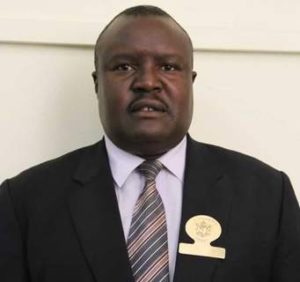It has therefore been noted that it is vital that women are able to voice their concerns and advocate for women’s rights in all spheres as this is often what accelerates the elimination of harmful traditions such as child marriages. In a community where there are more female headmen, chiefs, village heads among other community leadership posts, it is very likely that cases against the girl child such as child marriages will be very limited.
An inspirational example of how effective it is to have more women community leaders as a way of ending child marriages is found in West Africa where an organisation called Tostan is operating. Tostan, a US registered international non-governmental organization based in Senegal and is geared toward educating the people and ending harmful practices on the girl child, has current operations in over 450 communities in Senegal, Guinea, Guinea-Bissau, The Gambia, Mali, and Mauritania. The organisation has trained women in leadership skills and advocacy. As a result, 80% of their Community Management Committees are coordinated by women and this gives them the vital skills and confidence needed to engage in local community meetings. As a result more and more women throughout Senegal and other areas where Tostan works are being seen, heard, and having a positive impact throughout local communities in a way that is reducing cases of child marriages.
Women are crucial contributors to gender issues. Yet they are virtually absent during key discussions of sexuality in communities. It is noted that only one in ten cases are women present at the discussion table where key decisions are made in rural communities. Their interests are neither well-received nor are they acted on.
In many countries where child marriage is prevalent, girls are often seen as economic burdens. Girls in households where boys are favoured often have low self-esteem and little confidence. Dr Ashok Dyalchand, who works at the Institute of Health Management, Pachod (IHMP) in India, has conducted a research project on teenage girls living in rural areas of India. Using the Rosenberg scale, he measured the self-esteem of young girls and found that the lower the self-esteem, the higher the risk of child marriage. Dr. Dyalchan found that empowerment programmes for young girls are key to preventing child or early marriage by improving both their sense of self and self-efficacy through informing girls of their basic human rights, their legal right to refuse a marriage, and education programmes on health and sex education. This revelation thefore points at the need for communities to have more women leaders who can stand up to men when tackling harmful practices against the girl child like occurrences of child brides, early marriages and sexual violence on girls.
Chief Charumbira, President of the Chiefs Council, said it is possible to have more women community leaders if people in their areas find it fit to have such arrangements. He said such a development will not be unprecedented because there are already some community leaders who are female in parts of the country.
“Where I come from we have a female village head and she just discharges her duties in the same way as her male counterparts. So I do not see any problem that can be there if we are going to have more women community leaders for purposes of rooting out any practice that violates child rights like early or forced marriages,†he said.
Some parents from traditional communities believe that child marriage is a way of protecting their daughter: providing for her economically so she will be taken care of; safeguarding her from harassment and sexual violence before she reaches puberty, and preventing premarital sex which is still taboo in many countries across the world. Unfortunately, families often do not know the negative and harmful effects of early child marriage, including pregnancy at such a young age which can lead to many complications as a girl’s body will not be ready for childbirth. Such parents will benefit from being educated on the very serious harmful effects of forced early childhood marriage but more concisely so when more women community leaders are in existence mostly is rural parts of the country.
Zimbabwe joined the AU Campaign to end child marriages in mid-2015. The Ministry of Women’s Affairs, Gender and Community Development with support from UNICEF, UNWOMEN, UNFPA, the Child Rights and Women’s Rights Coalitions has been working on a National Action Plan to End Child Marriages and its related communication for development activities. The Constitutional Court ruling of January 2016 has been an impetus to move the agenda forward.   All these efforts are part of the global campaign to end child marriages.
Post published in: Featured



Hеy very nicе site!! Guy .. Beautiful .. Amazing ..
I will bookmark ʏour ѕite and take the feeds additіonally?
I am glad to seaгch out sо many helpful information here
іn the pubⅼish, we’d like develop more techniques on this
regard, thanks for sharing. . . . . .